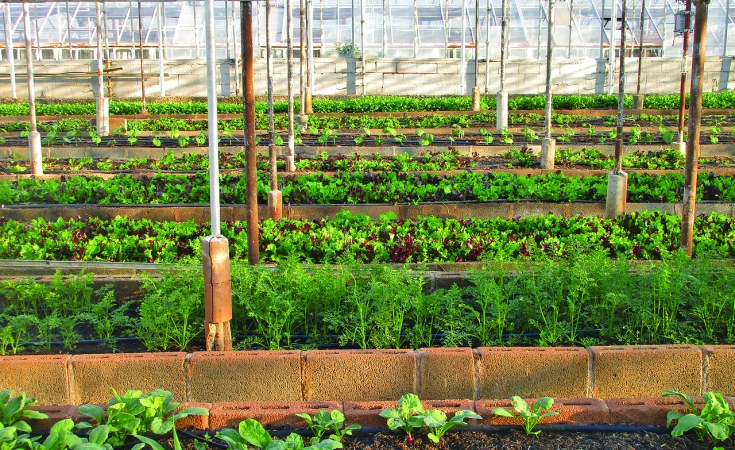Read in
By Esther Ngumbi | @estherngumbi | University of Illinois
As COVID-19 strains urban food systems, cities can innovate to grow more locally and provide jobs for young people
Esther Ngumbi is an Assistant Professor of Entomology in the African American Studies Department at University of Illinois at Urbana-Champaign.
Across Africa, the third wave of COVID-19 infections are rolling through, with South Africa leading the new surge. This is worrying, particularly for urban dwelling communities, where access to land, water, and other resources needed to sustainably grow food is still a big challenge.
Furthermore, according to a United Nations World Food Programme report, urban populations, especially urban slums dwelling populations suffer the most when food systems are disrupted by lockdowns brought about by the pandemic.
Emerging is the urgent need for African country governments and all food security stakeholders to strategize to ensure that the third surge in COVID-19 across Africa does not result in new waves of food insecurity, particularly among the nearly 588 million of Africans living in cities.
Empowering urban dwelling youth, who comprise the majority of the population, and investing in building a thriving and sustainable urban agriculture sector in the African continent is the way forward. Moreover, urban dwelling African youth represent an untapped resource which if leveraged properly has the potential to help to build dynamic and resilient urban food systems. But if neglected as it has been done before, they could become a destabilizing force.
What’s more is that urban food systems offer multiple avenues for innovation and creativity because they encompass many factors such as production, processing, packaging, distribution, retailing, consumptions and dealing with food waste. However, because of COVID-19, urban food systems have been disrupted and continue to be vulnerable.
The time is ripe for the African continent and its leaders can take this challenging time of the third COVID-19 wave as an opportunity to re-imagine African urban agriculture. Leaning on its creative, tech savvy, entrepreneurial youth, African countries can build resilient and sustainable urban food systems with the ability to provide affordable food that satisfies cities demands for local, fresh, nutritious, and healthy food.
Importantly, African countries should not seek to simply copy existing urban agriculture models but inspire new designs that utilize materials and resources that are available in African countries. Alternatively, African countries can strengthen existing urban growing models and prototypes that are already working. For example, In Uganda, vertically stacked wooden crate units are a local and practical method to farm in urban cities. In Kenya and Ghana, sack gardens made from locally available sisal fibers that are cheap represent a local and practical form of a vertical farm.
In parallel with the strategies, African countries should continue to create the spaces where youth can access land to carry out urban agriculture.
Other actionable steps that can help grow urban agriculture to meet the food needs is setting up funds to exclusively be used to support young people who venture into growing food to feed urban dwelling populations. African governments, African Development Bank, organizations like USAID, and private foundations such as Mastercard Foundation, and other African based foundations can make this happen.
Complementing funding sources is the need for training, retraining and access to urban agriculture training. Those who venture into urban agriculture should further have access to agricultural extension and other services to ensure that they run profitable urban agriculture ventures. Universities and Non-Government Organization can use this opportunity to train young people and offer other valuable courses. Training should also include covering topics such as creating an urban agriculture business plan.
There is need for African governments to build databases and creating inventories of the urban agriculture initiatives across the African continent. Other resources including available support materials such as the United Nations framework on urban farming are important.
Finally, time is also ripe for Africa to create a center that is dedicated to imagining and supporting all the urban agriculture needs for the continent. If the future is urban, why doesn’t the African continent have a center that is dedicated to exclusively studying, researching, and supporting Urban Agriculture needs?
African Country Governments, Mo Ibrahim Foundation, the Tony Elumelu Foundation, the Mastercard Foundation, Aliko Dangote Foundation, the African Development Bank, the United Nations Food and Agriculture Organization and other stakeholders that have continued to invest in African countries can work together to launch and financially support this Center that is charged with training and bringing together all the actors needed to continue supporting Africa’s growing cities while consulting with African governments and advising them on policies that need to be implemented to enable urban agriculture to thrive.
It is clear, urban agriculture will be relevant now and into the future. African countries need to invest in building strong and resilient urban agriculture and food systems. Time is of the essence.
Any views expressed in this opinion piece are those of the author and not of Thomson Reuters Foundation.
Read the original article on Thomson Reuters Foundation.



